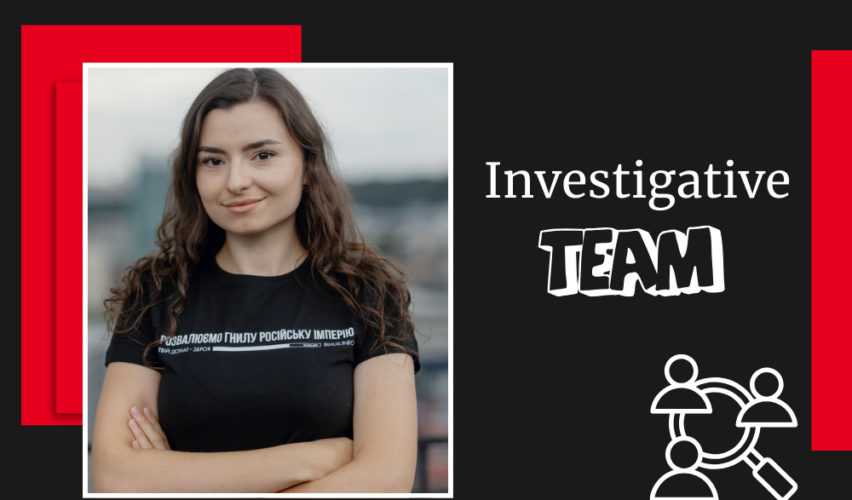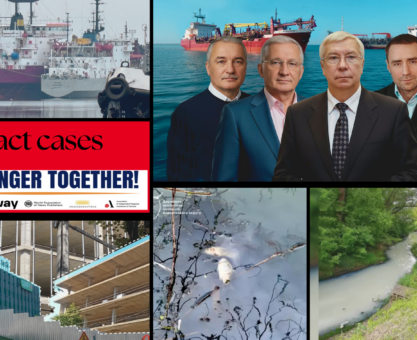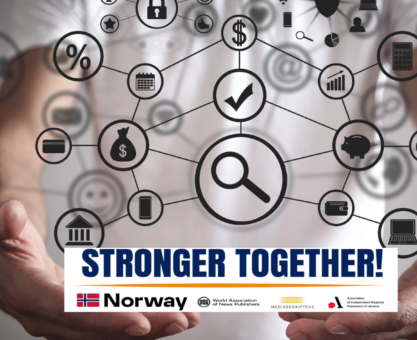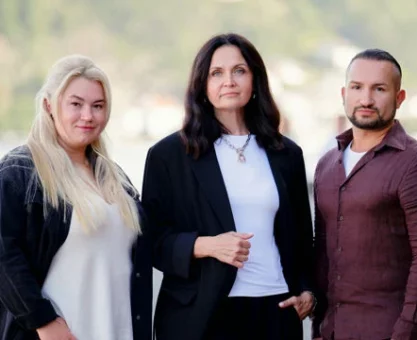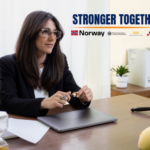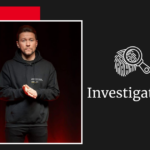As part of the Stronger Together: Transparency and the Fight Against Corruption program, we continue our series of stories about mentors and their teams — regional media outlets that are developing investigative journalism.
Meet Natalia Lazarovych, a journalist at Bihus.Info, who also has experience covering judicial topics.
«It is extremely important to strengthen investigative journalism in regional media. Having previously worked in a regional newsroom myself, I know the challenges journalists face and how often it is difficult to develop a new direction due to a lack of resources. Especially now, during the full-scale invasion, these challenges have multiplied: staff shortages, difficult working conditions in frontline areas, and limited funding.
Developing investigative reporting provides journalists with many tools and skills that can be applied when producing different types of content, and I believe this should be a key focus.
The Stronger Together project is very timely. It offers editorial teams an excellent opportunity to receive both financial and mentoring support to launch investigative reporting or significantly strengthen it. I expect that, together with the teams, we will be able to create strong and impactful investigations that will make a difference in their communities.»
The mentor’s teams
Vgoru and only forward
The media outlet Vgoru was founded in 2002. Since then, investigative reporting has remained an essential format for the newsroom. The editorial team has devoted significant attention to issues of transparency and accountability in city governance, the openness of local budget formation and spending, the effectiveness of law enforcement and judicial institutions, the penitentiary system, and the municipal sector.
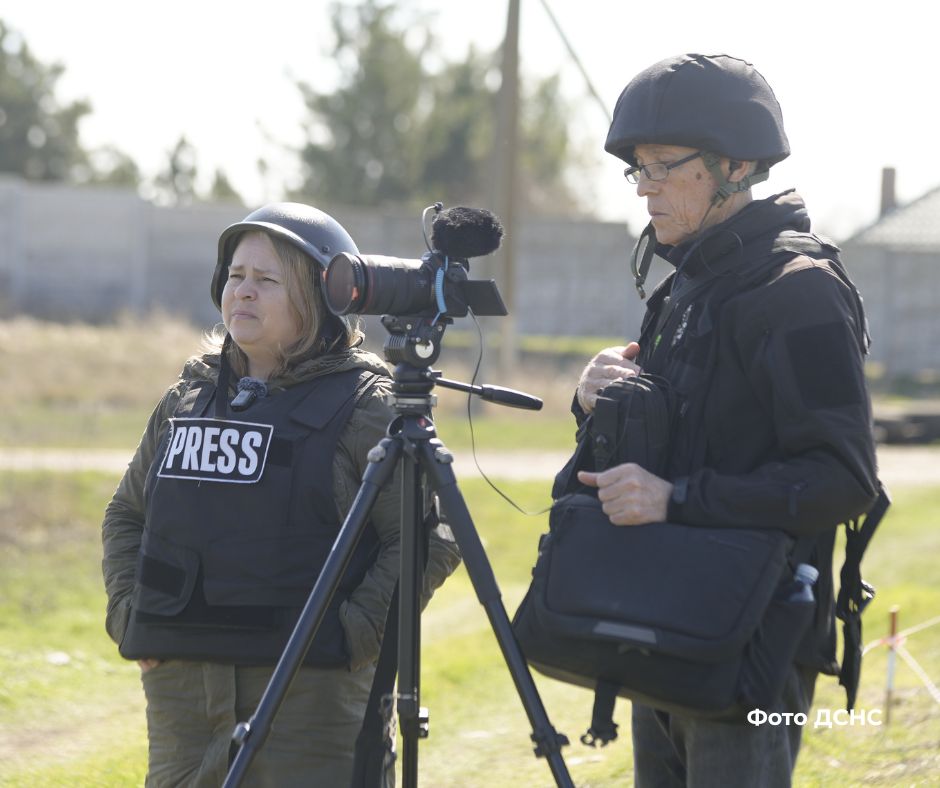
After the start of the full-scale invasion, the newsroom temporarily stopped publishing investigations, focusing instead on other formats. However, over time it became clear that such reporting was now critically important, as «Vgoru» is read both in de-occupied and still-occupied parts of the Kherson region. The team has since devoted significant effort to identifying those involved in the occupation system on the left bank of the region and sharing these findings with readers, says Deputy Editor-in-Chief Liza Zharkykh.
The opportunity to receive mentoring support and dedicate more time to training and producing investigations is both timely and essential, she adds. At present, all staff members are striving to contribute to this format, even though investigative journalism remains one of the most complex and costly areas of reporting.
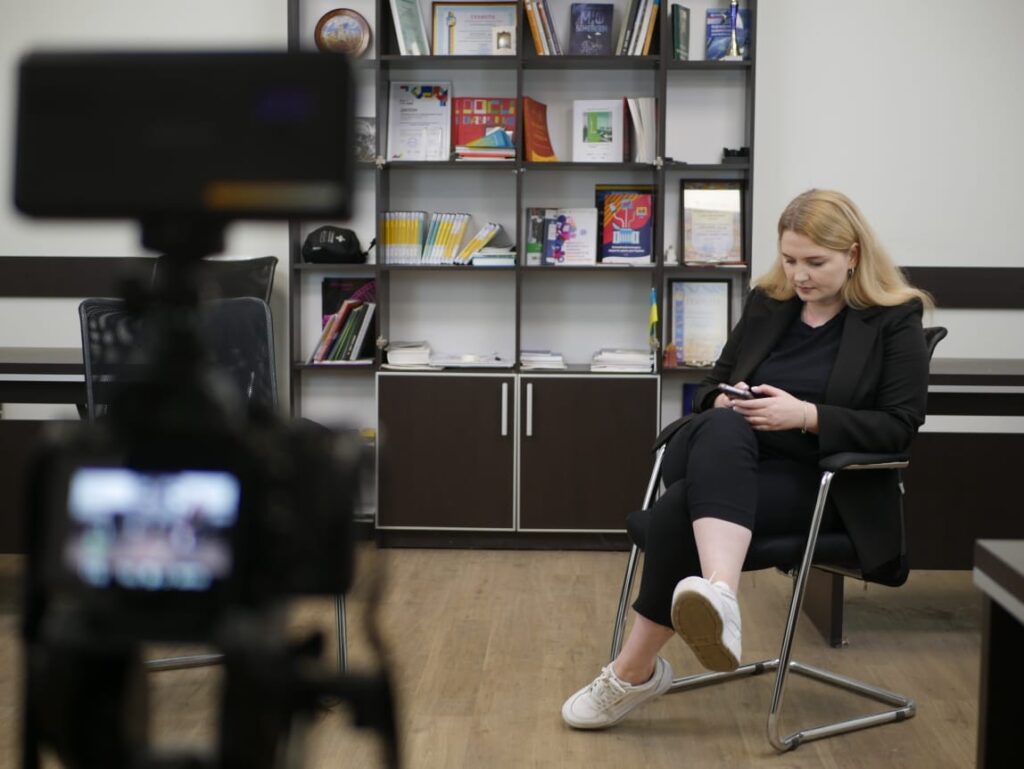
The goal is not only to expose the truth but also to drive change in the region. The sense of social responsibility is extremely high, says Liza, which means every investigation carries significant value.
«For example, our newsroom investigated who works in the occupation courts of the Kherson region. This is probably the most comprehensive piece on the subject, with a systematized list of those involved in crimes. We also analyzed the biographies of people who became collaborators and report on what they are currently doing in the occupied territories. We monitor which contractors are receiving funds for the reconstruction of liberated areas of Kherson and what kind of reputation these contractors have. And this is far from all», — she explains.
The most pressing challenge for the team right now is the lack of reliable information from the occupied territories, which makes it difficult to report on the left bank of the Kherson region. Investigative reporting also requires greater financial resources than other formats, as such work is time-consuming. Therefore, the team’s biggest needs are closely tied to these issues — training and funding.
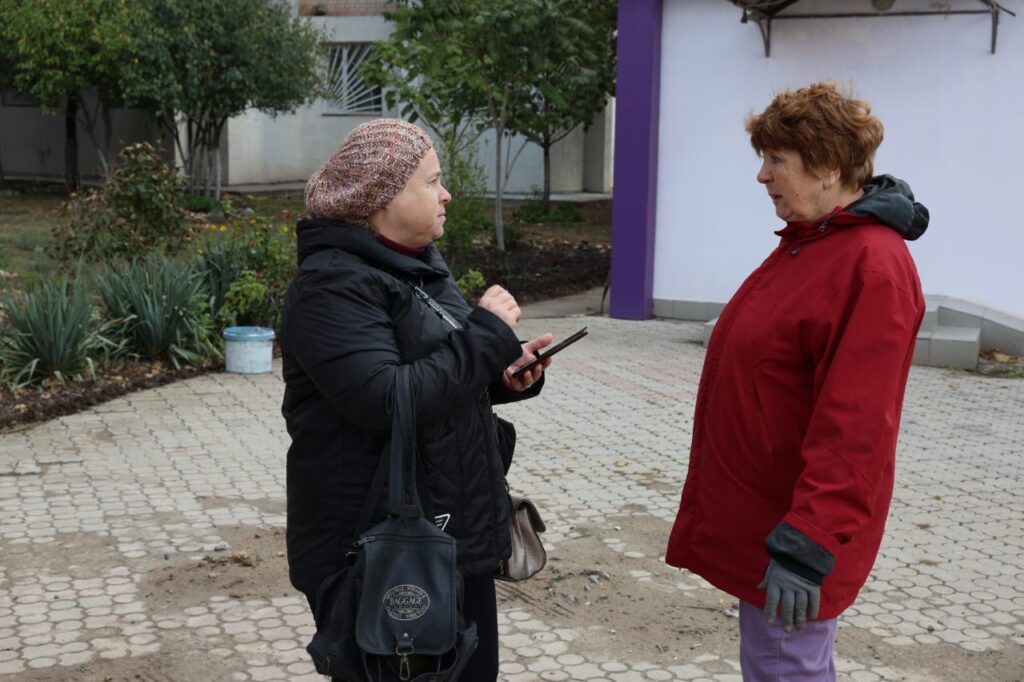
«Hiring a qualified investigative reporter is extremely difficult, so we decided to take a different path and train Vgoru’s own journalists. This approach brings results, although it takes a lot of time. The Stronger Together project is actively helping us with this. Working with a mentor, for example, provides experience you cannot gain from courses or group workshops. A mentor tailors their guidance to the team’s specific needs and explains how to use specialized tools. In fact, conducting investigations sometimes feels like an ungrateful and incredibly difficult task, but it is worth continuing and never stopping», — says Liza Zharkykh.
Kolo: just at the start, but full of potential
Unlike the previous story, here we will talk about a media outlet that is only beginning its journey in investigative journalism.
The story of the Poltava-based outlet Kolo began in 2003, when it was launched as a privately owned regional print newspaper. Today, it has transformed into a fully digital publication.
Although the newsroom has always emphasized the development of journalistic skills and encouraged its reporters to deepen their professional knowledge, its focus covered a variety of topics such as decentralization reform, gender equality, and more. The team has worked across different genres, but until recently, it had no substantial experience in investigative reporting.
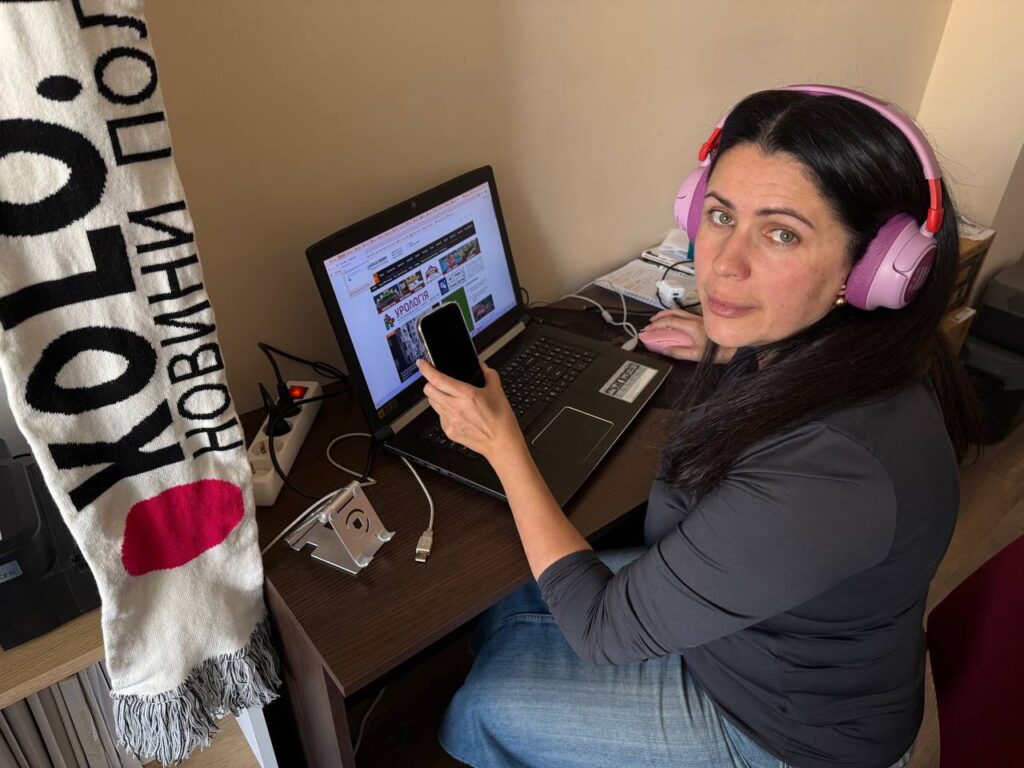
«We tried to tackle serious topics and turn them into investigations, but we lacked the drive to bring them to a logical conclusion. Sometimes, even at the stage of requesting a comment, we would immediately receive legal injunctions prohibiting the publication of information. We published materials, went to court, won some cases, lost others, and eventually decided that the newsroom needed to focus on one topic in order to become an expert in it, rather than chasing investigations in medicine, land issues, corruption, and so on», — says Tetiana Tsyrulnyk, the editor-in-chief of the outlet.
In the end, they managed to build expertise in the area of gas extraction.
«The Poltava region is one of the key areas for hydrocarbon production. So we became interested in the 20/20 Program (also referred to as the 20/20 Strategy), which envisioned that Ukrgazvydobuvannia JSC would reach 20 billion cubic meters of gas production by 2020. In the end, this campaign failed because its implementation relied entirely on state-owned companies. However, for the materials I prepared on this topic, I received several journalism awards. During the war, the team changed, new challenges arose, and it was no longer about investigations — the question was simply how the newsroom could survive», she emphasizes.
According to the editor-in-chief, the team lacks up-to-date knowledge of investigative journalism and has little experience or familiarity with digital tools and data sources.
«The realization that we do not have the basic knowledge needed for investigative reporting is very painful, and we are trying to catch up thanks to the Stronger Together project. Everything here is valuable: the constant contact with an investigative mentor, pre-publication legal review, and financial support that allows us to purchase equipment and pay our journalists. Investigations take a lot of time and resources — all of these components are extremely relevant.
In addition, we have become part of a community of colleagues and like-minded professionals. We actively communicate and share experiences, read the stories written by journalists from other regions, discuss them, and seek advice» — says Tetiana.
The team’s greatest need at the moment is financial sustainability. The second is knowledge: for beginners in investigative journalism, a strong training foundation and mentoring support are crucial.
«We understand what our readers are asking for: they are very interested in the allocation of local budgets and foreign aid. This is what we plan to focus on — where local funds are going, whether there is overspending. I hope we will succeed. To our colleagues from other regions, I want to wish inspiration in your work, because we have already received everything else as participants in the Stronger Together project», — the editor-in-chief concludes.
Chernihiv Media Group: strengthening the standards of journalism in the regions
Investigative reporting has not been the primary focus for Chernihiv Media Group until recently, said its head, Yaroslav Sukhomlyn. The outlet was mostly concentrated on news content.
However, with the launch of the new project Pechera.info, which specializes in original slow content, stories featuring investigative elements have become more relevant. As a result, the newsroom now plans to strengthen and expand its work in this area.
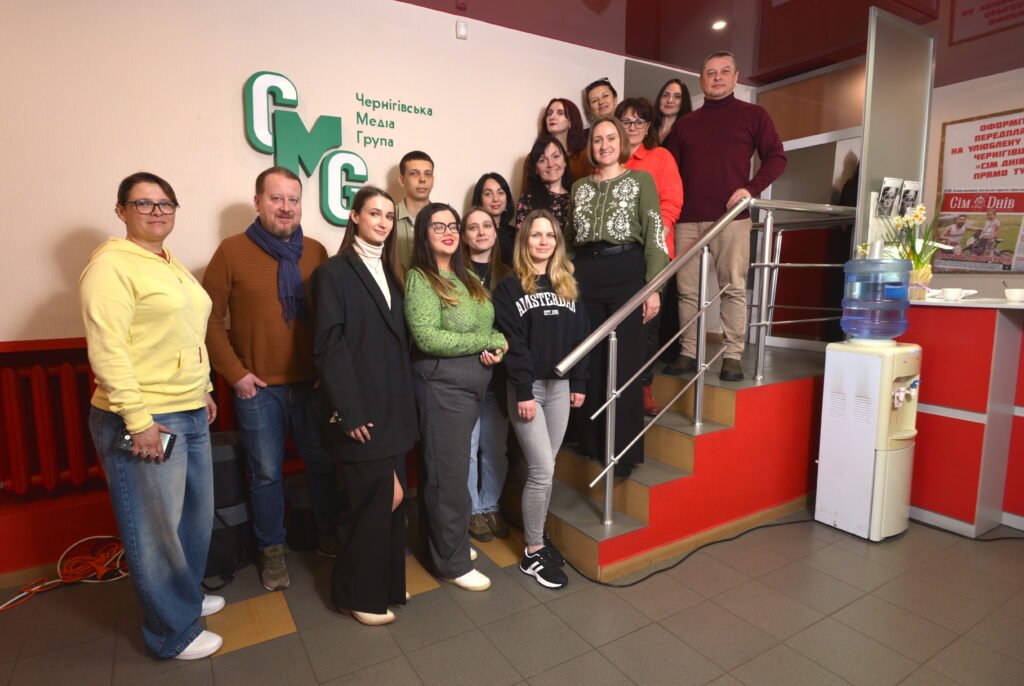
«We used to prepare analytical or semi-investigative stories about local officials and public spending. Articles analyzing officials’ salaries, examining asset declarations, or exploring the influence of russian propaganda attracted significant audience interest. But now we are striving for much more, and our main motivation is growth. Everything is moving so fast that stopping means death. You have to run very quickly just to stay at the same level as colleagues from other regions. Finding new formats and ideas is crucial», said Yaroslav.
Because of the war and censorship restrictions, it has become more difficult to obtain official information, the media head added. Officials often refuse to provide requested data under the pretext of «classified during wartime». Financial challenges also complicate the work, since investigations require substantial time and effort from the team.
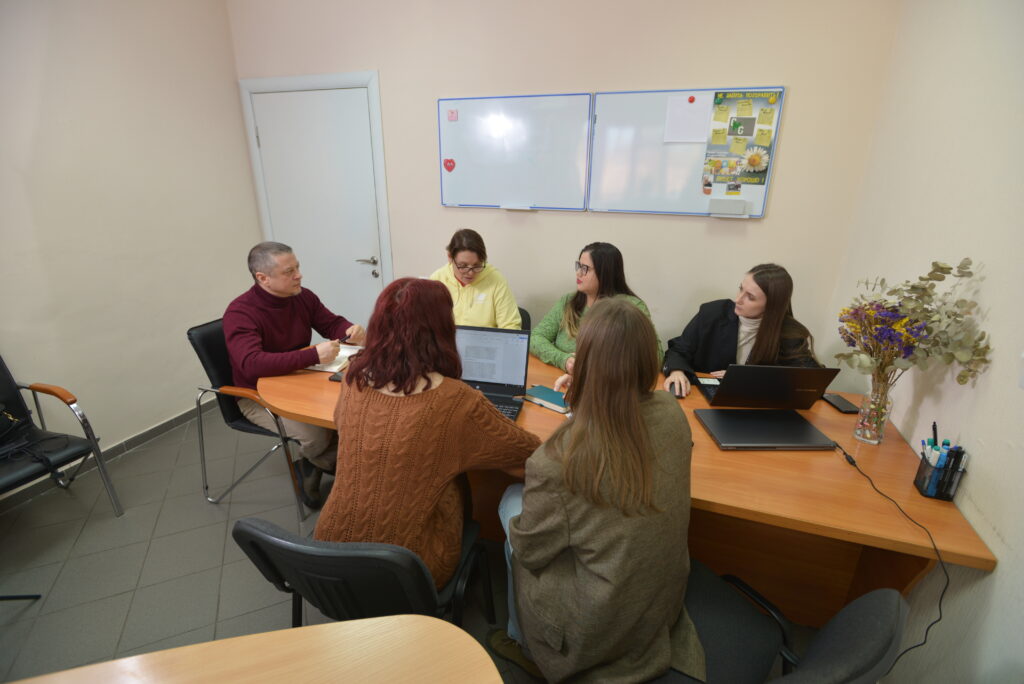
What’s next? Within the project, the newsroom aims above all to establish sustainable workflows in this genre, so that over time what now seems complicated and unclear will become second nature for journalists. Careful planning, close cooperation with a mentor, and intensive training workshops, the editor is convinced, will ultimately deliver excellent results.
«I am confident that thanks to this project we can show and prove that regional media are also capable of producing in-depth analytical pieces, research, and investigations. I hope this initiative will raise the overall standard of regional journalism», Yaroslav emphasized.
We will soon share more stories about other teams and their mentors in the project.
Read also:
- Investigations without compromise. Meet Alisa Yurchenko’s team in Stronger Together
- Unafraid of сhallenges and experiments: meet Oleksandra Gubytska’s team in Stronger Together
***
The program Stronger Together: Media and Democracy is implemented by the World Association of News Publishers (WAN-IFRA) in partnership with the Association «Independent Regional Press Publishers of Ukraine» (AIRPPU) and the Norwegian Media Businesses’ Association (MBL) — with the support of Norway.

